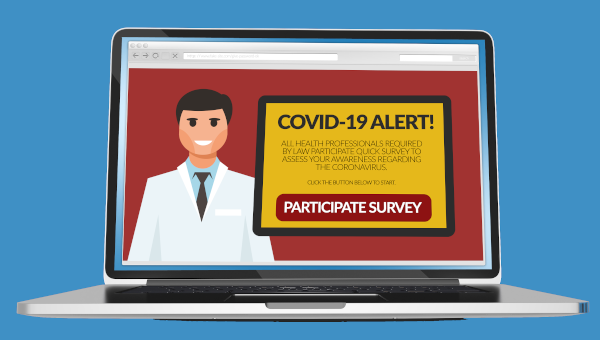
Scammers jump on any of the latest happenings in the world and are always looking for opportunities, and at the moment they are targeting the coronavirus (aka COVID-19). This article outlines what you need to watch out for and how to stay cyber safe.
Cyber criminals prey on fear. They take timely concerns and use them to target victims and the coronavirus is a perfect opportunity for them.
So far, several coronavirus-related attempts to scam people have been reported. Some examples are:
- COVID-19 tests from government organisations and private companies;
- asking for donations to fund a vaccine.
- emails appearing to come from government health departments or other trustworthy organisations;
- memos to staff that appear to come from large employers;
- fake websites promising to sell face masks or hand sanitiser;
- offering a tax refund to get people to click on malicious links;
What You Need to Look Out For?
Be extra vigilant with any emails or websites you might see that talk about the Coronavirus or COVID-19.
There are a number of bogus websites registered with names relating to coronavirus or COVID-19. The sites may look legit but they are set up to steal information or infect your computer with malware.
You may get an email promising the attached information offers coronavirus safety measures, or information shared by the World Health Organisation (WHO) if you click on the link, or a similar email pretending to be from a reputable news source.
In another example, an email impersonating a healthcare company’s IT team asked people to register for a seminar “about this deadly virus.” Anyone who didn’t question why IT was organising the meeting clicked to register. By filling out the form, your details are sent to the hackers.
What to Do
Be cautious. It’s understandable that you are anxious, but do not let that stop you from taking cyber precautions. You should still:
- be careful or where you get your information from – remain vigilant even if the communication appears to be coming from a reliable source;
- global health organisations generally do not send out emails with advice. Instead, navigate directly to that reputable health institution for real news.
- ignore any communications requesting your personal information;
- be wary of anything that tries to play on your emotions and urges immediate action;
- hover over links before clicking them to see where they will take you – for example, in the WSJ example, the Web address was for the “worldstreetjournal.com”;
- avoid downloading anything you did not request;
- give the benefit of the doubt that any deals that sound too good to be true are a scam! (eg “a mask that stops the virus 99.9% of the time!”);
- do not be suck in by fraudulent pleas for a so called “charity”. If you want to donate, go directly to that charities website or telephone them.
If you are still unsure about the validity of the communication, double check it. This can be done by calling the parties direct or using another medium to get in touch with the “source” of the received message.
While there is not yet a vaccine for COVID-19, you need to install anti-virus protection on your computer and make sure that you have applied all available security updates to keep your computer safe.
We hope you take care and stay healthy both physically and online in these tough times. If you need help installing security software and keeping your technology safe, our cyber security experts can give your tech an immunisation. Contact us today at 08 8326 4364 or via email at
su*****@dp*********.au
!
